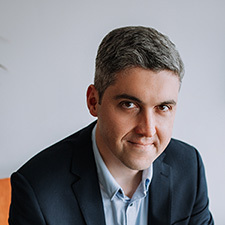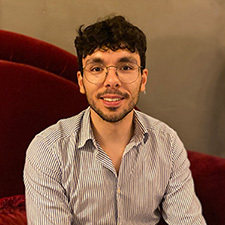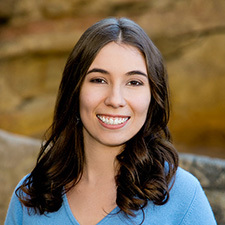Submission Information
“Decisions about the future of Europe directly or indirectly concern the entire person amid the peoples of Europe as a whole and, given the present unity of world history, the totality of humankind. ... They are questions about the whole world.” — Karl Rahner, S.J.
Europe in the World’s mission is to provide public-facing commentary and analysis of Europe’s political, social, and economic relations with the world. It is intended to provide a platform for scholars of Europe, of all disciplines, to present their ideas to a wider audience, thus bridging the gap between the academy and the general public. As an initiative housed within the Nanovic Institute, EITW views European issues as global issues, and questions about Europe as questions about the planet, our common home. For a fuller introduction to the blog, see this post from the editors.
EITW covers a broad range of topics, and the editors encourage authors to think both big and out-of-the-box when crafting submission ideas. Submissions can take the form of commentary pieces regarding current events and developments, policy-oriented works that present clear and actionable suggestions for further engagement, summaries or overviews of current or past works, and even book reviews.
General Guidelines and Requirements
While we seek to take a big-tent approach to article contribution, there are some overarching guidelines that we ask all contributors to follow:
- Submissions should be aimed at a wide, public audience consisting of academics from other disciplines and non-academic individuals.
- Authors should do their best to relate their submissions to events and trends in modern Europe. If you are unsure about your topic’s applicability, please feel free to contact the editors in advance to discuss substantive fit.
- Avoid jargon and technical terms whenever possible.
- Be clear and concise. Write your submission in essay form, with the main point presented in the first paragraph along with an overview for the rest of the piece.
- Limit citations of academic works if possible. Rather than cite in an academic style, please use hyperlinks to sources. Most sources referenced this way should be publicly available.
- At the end of your article, in a separate section, please provide at least three further publications (if possible) about your submission topic where interested audience members can read further about the subject matter. They do not have to be publications by the author.
- Submissions should be around 1,000 words in length and in Word format (.doc or .docx).
- Besides the manuscript, submissions should include the author's contact information and a short biography (in the submission email) as well as a professional photo or headshot (as a .jpg attachment).
Submission and Review Process
To be considered for publication in EITW, contributors should send complete submissions in the format detailed above to eitw-nanovic-list@nd.edu.
Submitted articles are first screened by the editors for quality and fit, after which the editors decide whether to proceed with the piece or not. If the editors find the article suitable, it is subjected to editing and comments by the editors and Nanovic Institute communications staff and returned to the author for revisions. The standard length of review turnaround time after initial submission is three weeks.
Meet the Editors
Europe in the World is a graduate student-led initiative, founded by Moritz Graefrath and Alec Hahus, and edited by members of the Nanovic Institute’s Graduate Fellows program. If you are interested in getting involved with EITW, please contact the editors.
Antônio Lemos

Co-editor
Antônio Lemos hails from Curitiba, Brazil. After studying law at the Universidade Federal do Paraná, he graduated in philosophy and theology at the Pontifical Athenaeum Regina Apostolorum in Rome, Italy. It was there that he attained a degree in licentiate in sacred theology (equivalent to a master's degree), with a specialized focus on moral theology and Catholic social teaching. His licentiate dissertation bore the title “Perspectivas morais do fenômeno migratório no magistério recente” (Moral perspectives of the migratory phenomenon in the recent Magisterium). Presently, he is engrossed in the pursuit of a Ph.D. in moral theology from the University of Notre Dame. His ongoing research journey navigates the right of migration as laid out in Catholic social teaching and the traditions of Christianity. He holds a particular fascination for the theological and moral principles that serve as the bedrock of this right, while also tracing its historical origins, with a keen eye on the sixteenth and seventeenth-century Spanish scholastic influences. His other interests include virtue ethics, economics, business ethics, and bioethics. When Antonio is not studying, he enjoys drinking IPAs, listening to German heavy metal, and playing Dungeons and Dragons with fellow theologians.
Salvatore Riolo

Co-editor
Salvatore Riolo, a second-year Ph.D. candidate in Italian studies at the University of Notre Dame, earned a B.A. in languages, civilization, and the science of language at the University of Venice and an M.A. in linguistics at the University of Bologna. He was selected as a Nanovic Institute Graduate Fellow for the 2023-24 academic year and serves as co-editor for Europe in the World. His research background includes foreign languages and translation (specifically German, English, and Russian), textual linguistics in literary studies, and semiology. He also has experience as a teacher of Italian as a second and foreign language.
Stephanie Truskowski

Co-editor
Stephanie Truskowski is a Ph.D. student who studies the history of Central Europe in the 19th century. She received a B.A. in History from UCLA, a master’s in modern history from Utrecht University, and a master’s in social science from the University of Chicago. Her research focuses on the Habsburg empire and the overlapping concepts of nationalism, liberalism, and monarchy. Her research has also explored the international connections of the Habsburg empire and the German states to the Americas. Her dissertation will focus on the conception and reception of the Second Mexican Empire in Europe. She is a Graduate Fellow at the Nanovic Institute for European Studies and a co-editor of Europe in the World.